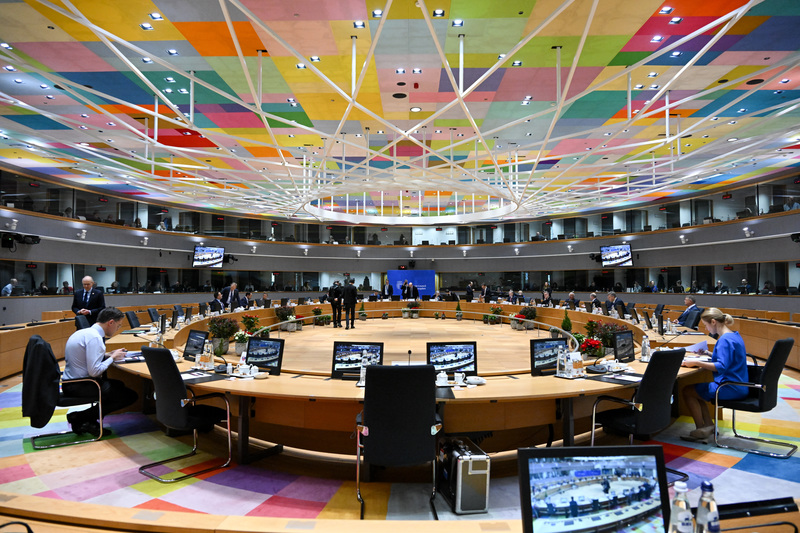The European Council which ended on Friday focused on enlargement and resulted in an unanimous decision to open accession negotiations with Ukraine after Hungary’s Prime Minister, who had threatened to use his veto against the decision, left the meeting room during the vote.
As previously reported, Victor Orban, the Hungarian Prime Minister, used his veto to block a decision on granting much needed financial assistance to Ukraine, this after the European Commission on Wednesday had decided to release € 10 billion in funding to Hungary.
All the other 26 EU member states voted for the aid to Ukraine. The Council decided to revert to the matter early next year, around end January-beginning February.
In the meantime, Ukraine will receive the remaining €1.5 billion from EU’s Macro-Financial Assistance for 2023 (in total €18 billion for 2023) to help it bridge the gap in its budget until the rest of the funding, €50 billion for 2024 – 2027, will be approved – provided that Hungary will reengage with the EU in solidarity with Ukraine.
This support will help Ukraine to continue paying wages and pensions, and keep essential public services running, such as hospitals, schools, and housing for relocated people. It will also allow Ukraine to ensure macroeconomic stability and restore critical infrastructure destroyed by Russia in its war of aggression, such as energy infrastructure, water systems, transport networks, roads and bridges.
Since the Commission’s enlargement package in November, Ukraine has continued to make good progress in meeting the conditions for opening accession negotiations.
According to the Commission’s previous assessment, Ukraine had completed four of the seven steps in the reform process (1, 2, 4 and 6) and more than 90 % of the actions under all steps.
Under the other steps (3 anti-corruption, 5 anti-oligarchs and 7 national minorities), there were only four laws that need to be enacted. The negotiating framework will be adopted once Ukraine has enacted all the laws.
Commission President Ursula von der Leyen stated in a speech in the European Parliament on Wednesday that Ukraine had enacted three of the four outstanding recommendations that need to be implemented effectively. Among others, the Ukrainian parliament (Rada) has approved an amended law on national minorities.
“This law will allow greater use of minority languages in schools, in books, and in public events,” she said. “Actually, national minority groups have already reacted positively to this law. And our initial assessment is also positive.”
For Hungary this should also be positive, since there is a significant Hungarian minority in Ukraine which will benefit from the law.
In its conclusions, the European Council reiterated its resolute condemnation of Russia’s war of aggression against Ukraine and reaffirmed the European Union’s unwavering support for Ukraine’s independence, sovereignty and territorial integrity within its internationally recognised borders and its inherent right of self-defense against the Russian aggression.
The Council also welcomed the adoption of the 12th package of sanctions against Russia and condemned the continued military support for Russia’s war of aggression provided by Iran, Belarus and North Korea.
It also urges all countries not to provide material or other support for Russia’s war of aggression.
The Council also decided to grant the status of candidate country to Georgia and open negotiations with Bosnia and Herzegovina once the necessary degree of compliance with the membership criteria is achieved.
Negotiations with North Macedonia have already started but the country still needs to implement institutional changes to complete the opening phase of the negotiations.
As regards Turkey, the accession negotiations have effectively come to a standstill since 2018 due to Turkey’s backsliding on core EU principles and values.
The Council took note of the recent report on the state of play of EU-Turkey relations, which it had requested in June, but did not take any decision. It says that it will revert to the matter at an upcoming meeting.
The European Council also discussed the Israel-Hamas war and the humanitarian situation in Gaza but did not take any new decisions on amending its common position.
M. Apelblat
The Brussels Times

